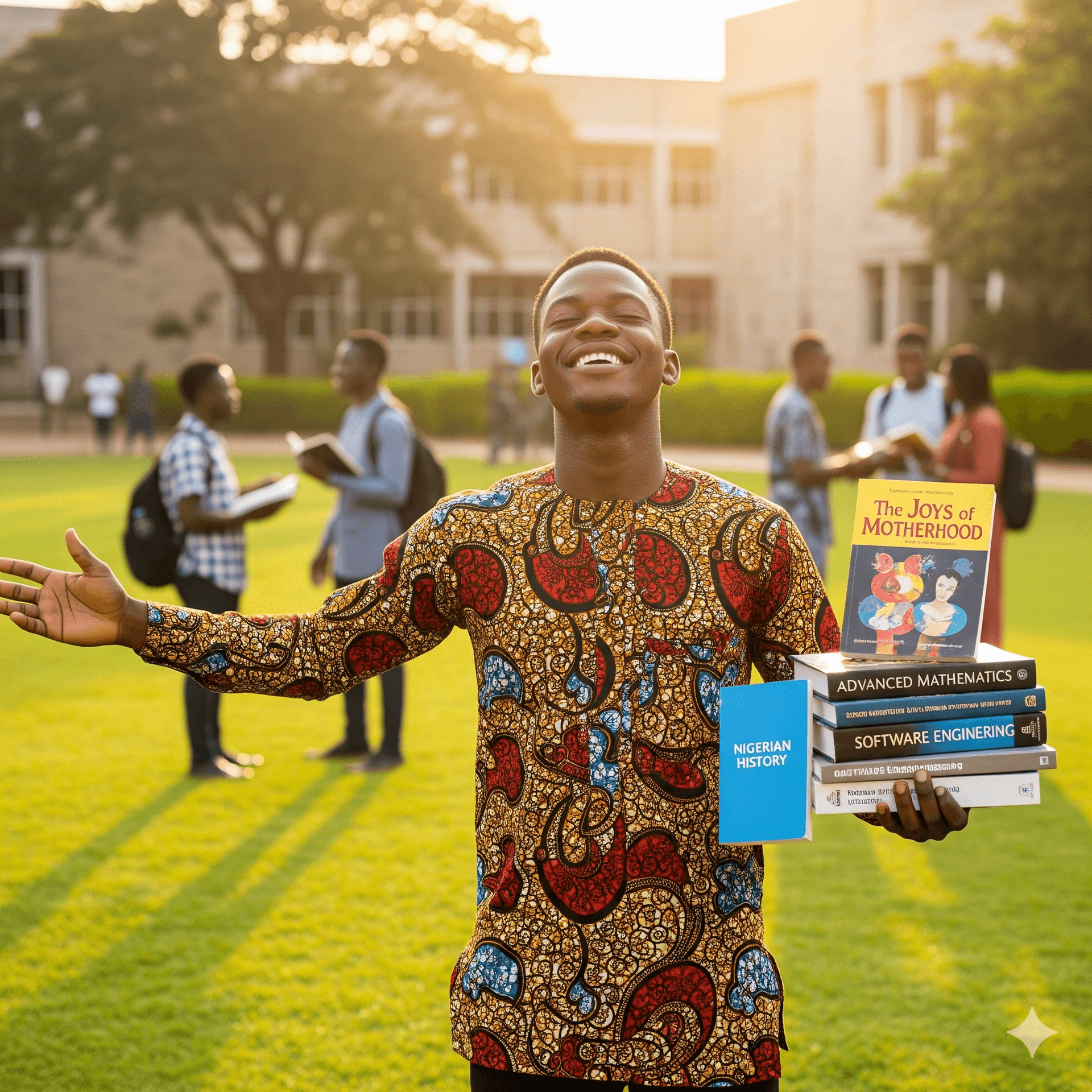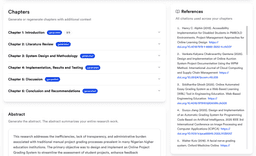List of Undergraduate Scholarships in Nigeria (2025 Updated Guide for Students)
Discover the latest undergraduate scholarships in Nigeria for 2025. Includes MTN, NNPC, Chevron, Shell, NLNG, Jim Ovia, PTDF, and more. Learn award amounts, eligibility, and tips to boost your chances.


School fees in Nigeria are not cheap. Between tuition, textbooks, hostel rent, and daily expenses, many students struggle to keep up. That’s why scholarships are such a big deal. They can take away a huge part of the financial stress and allow you to focus on your studies.
The good news? There are many scholarship opportunities for undergraduates in Nigeria — from big oil companies, to government agencies, to private foundations.
The bad news? Many students miss out because they either don’t know about them, or they find out too late.
This guide is here to change that. Below is a full, updated list of undergraduate scholarships in Nigeria (2025), how much they pay, who can apply, and practical tips to increase your chances.
⭐ Latest Update: NLNG Undergraduate Scholarship 2025 Now Open
The NLNG Undergraduate Scholarship Scheme (UGSS) is officially open for applications.
- Opens: Nov 18, 2025
- Closes: Dec 12, 2025
- Type: Merit based
- Award: ₦300,000 yearly
- Eligible: Undergraduates in public universities
Apply only through the official NLNG scholarship portal.
Note: NLNG Undergraduate Scholarship is exclusively for fresh 100 level students. Returning students or 200 level students are not eligible.
⚡ SIWES Tools for Students 🔥
Stop struggling with your SIWES logbook — use our free AI-powered tools designed for students to save hours of work:
📘 SIWES Logbook Generator – Instantly create daily and weekly entries.
📑 SIWES Report Generator – Generate a full SIWES report draft in minutes.
🎓 Trusted by 1,000+ Nigerian students.
👉 Try them now and complete your logbook faster!
Corporate & Oil/Gas Scholarships
These are the most popular and usually pay the highest amounts. Most of them target STEM (Science, Technology, Engineering, Mathematics) and medical students.
- MTN Foundation Scholarship – ₦300,000 per year. For 300-level science and tech students, plus a special stream for blind students.
- NNPC / SNEPCo Scholarship – ₦200,000 per year. For Engineering, Geosciences, and ICT students.
- NNPC / Chevron Scholarship (formerly Agbami) – ₦200,000 per year. Covers engineering, health, and related fields.
- NLNG Scholarship – ₦300,000 per year (Now open for 2025: Nov 18 to Dec 12). Strictly for 100 level students in federal and state universities. Renewable.
- Shell / SNEPCo National Merit Scholarship – ₦200,000 per year. For engineering and geoscience students.
- ExxonMobil Scholarship – ₦150,000 per year. For science and engineering fields.
- Agip (NAOC) Scholarship – Note: currently focused on postgraduate studies, not undergraduates.
💡 Tip: Oil & Gas scholarships are very competitive. You’ll usually need at least a CGPA of 3.5/5.0 to stand a chance.
Government & Public Sector Scholarships
- Federal Government Scholarship (FGSB) – ₦450,000 per year for undergraduates in federal and state universities.
- PTDF Scholarship – ₦700,000 per year + laptop. Focused on Petroleum, Oil & Gas related courses. Very competitive.
- State Government Scholarships – e.g., Lagos, Kaduna, Rivers, etc. Amounts vary but usually cover tuition or a set allowance.
💡 Tip: Many students ignore state scholarships, but they are often less competitive than the big national ones.
Private Foundations & NGO Scholarships
- Jim Ovia Foundation Scholarship – Tuition + ₦150,000 yearly allowance. Open to all fields.
- FATE Scholar Programme – For 100-level students in public universities, focused on STEAM (Science, Tech, Engineering, Arts, Mathematics). Covers tuition and extra support.
- NWAG (Nigerian Women Association of Georgia) Scholarship – $300 (USD) for female undergraduates.
- The Bridge Scholarship – ₦200,000 per year for students in public universities.
- KPMG University Scholarship – Be careful: the ₤3,000 scholarship widely advertised is tied to UK programmes, not Nigerian schools. Always double-check before applying.
Who Benefits the Most?
- STEM students – Engineering, Medicine, ICT, and Pure Sciences (most oil and gas scholarships).
- General courses – Federal Government, Jim Ovia, Bridge, State scholarships.
- Female students – NWAG and other women-focused awards.
How to Apply & Win
- Start early – most scholarships open between April and September. Don’t wait until deadlines are near.
- Keep your documents ready – admission letter, school ID, transcript/CGPA, passport photo, indigene certificate, WAEC/NECO.
- Maintain a good CGPA – 3.5/5.0 is the sweet spot for most corporate scholarships.
- Apply to many – don’t just apply to one. Apply to 5–6, increase your chances.
- Watch out for scams – no real scholarship asks you to pay “processing fees.”
- Focus on renewables – MTN, PTDF, and Shell renew yearly if you maintain your grades. That’s long-term support.
Quick Comparison Table (2025 Updated)
| Scholarship | Amount (per year) | Who Can Apply | Notes |
|---|---|---|---|
| MTN Foundation | ₦300,000 | 300L STEM + blind students | Renewable |
| NNPC/SNEPCo | ₦200,000 | STEM/ICT | Very competitive |
| Chevron/Agbami | ₦200,000 | Engineering/Health | Now merged under NNPC/Chevron |
| NLNG | ₦300,000 | 100 level students or undergraduates | 2025 applications open until Dec 12 /Renewable |
| Shell | ₦200,000 | EEngineering/Geoscience | Nationwide |
| ExxonMobil | ₦150,000 | Science/Engineering | Smaller award |
| PTDF | ₦700,000 + laptop | Oil & Gas/ Engineering related | Very competitive |
| FGSB | ₦450,000 | All courses | Federal award |
| Jim Ovia | Tuition + ₦150,000 | All courses | Renewable |
| The Bridge | ₦200,000 | Public uni students | General fields |
| NWAG | $300 (≈₦—) | FFemale undergraduates | Female-only |
Final Advice
At the end of the day, you don’t need to chase the “biggest” scholarship — you just need the right one that matches your course and CGPA. Even a ₦150,000 scholarship can cover your hostel rent and textbooks for a whole session.
So:
- Keep your grades up.
- Apply early and widely.
- Don’t fall for scams.
- Focus on what you can confidently defend.
If you stay consistent, you’ll increase your chances of landing at least one scholarship before you graduate.
FAQs
1. Which scholarship is best for Nigerian undergraduates in 2025?
The MTN Foundation Scholarship (₦300,000), PTDF Scholarship (₦700,000 + laptop), and NNPC/SNEPCo Scholarship (₦200,000) are among the most popular and valuable for Nigerian undergraduates.
2. Can I apply for more than one scholarship at the same time?
Yes. You should apply to multiple scholarships because competition is high. If you qualify for more than one, you can accept them as long as there is no conflict in terms and conditions.
3. What CGPA do I need to qualify?
Most corporate scholarships require a minimum CGPA of 3.5/5.0 (Second Class Upper). Some government and NGO awards may accept a CGPA of 3.0.
4. Are there scholarships for 100-level students?
Yes. Scholarships like NLNG (₦300,000) and the FATE Scholar Programme target students at 100 level. Others, like MTN and NNPC, start from 200 or 300 level.
5. Which scholarships cover all courses, not just STEM?
Jim Ovia Foundation, Federal Government Scholarship (FGSB), The Bridge Scholarship, Bet9ja Foundation, and most state government scholarships are open to all courses.
6. Are there scholarships specifically for female students?
Yes. The NWAG Scholarship ($300) is designed for Nigerian female undergraduates. Some state and NGO scholarships also prioritize women.
7. Do I have to pay to apply for scholarships in Nigeria?
No. Legitimate scholarships in Nigeria are 100% free to apply for. Avoid scams that ask for “processing fees.”
8. When is the best time to apply?
Most scholarships open between April and September every year. Start preparing your documents early to avoid missing deadlines.


